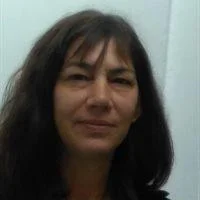DiSTO Uruguay
DiSTO is linked to two distinct research initiatives in Uruguay
Country context
- Uruguay, situated between two giants: Argentina and Brazil, is the second smallest South American country with only 3.4 million inhabitants (World Bank).
- Uruguay has very high human development by international standards (55th on the world ranking list according to UNDP), with a Gini score of 40.6 according to World Bankdata (2022).
- In the context of Latin America, Uruguay is generally considered a small but stable country, with a considerably developed welfare state. For example, Uruguay is ranked first in Latin America for its quality and stability of its democratic system (Source: Democracy index), lower perceptions of corruption (Source: Corruption Perceptions Index), and freedom of press (Source: World Press Freedom Index).
- Nonetheless, compared to developed countries, Uruguay faces substantial socioeconomic inequalities, particularly in its educational outcomes. For example, the achievement of secondary compulsory education is lower than in other Latin American countries, and youth from higher socioeconomic households are 5 times more likely to finish school than their peers from lower socioeconomic households (71% vs 15%; Source: INEED).
- On the other hand, the Uruguayan government has implemented several successful national-scale digital inclusion policies, particularly for children and seniors. One notable example is Plan Ceibal, a government-funded offspring of the One Laptop Per Child (OLPC) initiative. This policy provides laptops or tablets, fiber-optic connectivity and educational content free to all students and teachers in the public educational system (close to 1/6thof the total population). Moreover, some elements of Plan Ceibal, such as digital public libraries, are accessible to all Uruguayan residents (Source: Plan Ceibal).
- Similarly, the government-funded Plan Ibirapitá provides free tablets specially developed to senior citizens, as well as basic digital literacy courses to all lower-income pensioners (Source: Plan Ibirapitá). The Uruguayan government also has a very active e-government and open-government agenda, substantially increasing the number of services and procedures available online during the past decade (Source: AGESIC).
- 90% of the adult population use the daily (Source: ECH 2023, INE), and access in young people (9-17) is almost universal (Source: Kids Online Uruguay).
Projects in Uruguay
In Uruguay the DiSTO project has two survey project areas – DiSTO Liceal and WIP+DiSTO Uy.




